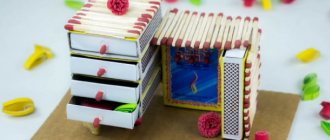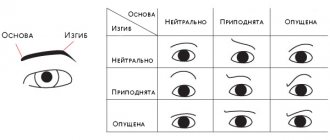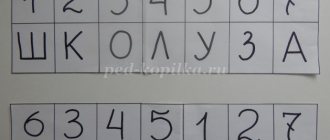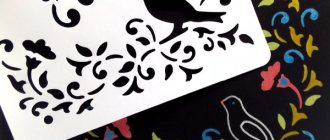Extracurricular activity in 3rd grade “Vocabulary Day”
- September 10, 2019
International and All-Russian competitions
Laureate of the All-Russian competition of pedagogical excellence “Methodological piggy bank of a teacher of additional education”
Extracurricular activities with students with disabilities in 3rd grade.
Topic: Dictionary Day.
Authors of the lesson: teacher-speech therapist, educational psychologist, teacher-librarian.
Purpose of the lesson: development of skills in working with dictionaries, coherent speech, and cognitive interests of students.
Tasks:
- clarification and expansion of knowledge about the Russian language;
- developing the ability to use dictionaries and independent work skills of students;
- development of coherent speech, expressive and conscious reading;
- development of attention, memory, mental operations;
- increasing students' motivation to read additional literature;
- fostering curiosity, attentiveness, and determination.
Required equipment and materials:
- computer, multimedia – projector, screen, speakers;
- presentation in Microsoft Office Power Point;
- portrait of V.I. Dahl;
- cards with phraseological units;
- ball;
- bookmarks;
- dictionaries;
- pens or pencils.
Course and content of the lesson
I. Org. moment. (slide 1)
Librarian: Hello. Today is an unusual activity. We are holding it in a new environment for you. Look, what do you see? What's unusual in the office? (There are many books, many teachers, this is a library, shelves with books, there are tables...).
Psychologist: Before we start our lesson, I suggest you play a little and cheer yourself up. Exercise “Handshake”. You walk around the library and greet everyone without words, with a handshake. You need to shake as many hands as possible in one minute. Everyone counts how many times he said hello. You want your handshakes to be calm, affectionate, and friendly.
(After a minute, conversation: How many hands did you shake? In what mood did you shake? Who smiled at their comrades when they greeted them?)
Speech therapist: When we greet a person, we give others a piece of our soul, heart, we give a good mood, we wish them health. The word “hello” comes from the Old Slavonic word zdravie – “health”. How do you think we knew this? (Children’s answers: someone told me, they read it in books, dictionaries, the Internet, ...).
Psychologist: Now let’s stand in a circle and play the game “Loaded onto a barge.” We pass the ball around and name everything that can be loaded onto a barge and that begins with the sound C (you can choose any sound. Examples: table, elephant, sausages, airplane, dictionaries, snow, juice, ...).
Librarian: Please tell me, what is a “barge”? (Children's answers) (slide 2).
A barge is a flat-bottomed cargo ship that is used to transport goods by water. Sometimes low-speed cargo ships with simplified lines are also called barges. Generally, the word "barge" refers to a vessel without an engine; A tug is used to move the barge.
Where can we find out the meaning of an unfamiliar word or expression? (On the Internet, ask adults, find it in the dictionary, ...).
II. Communicate the topic and objectives of the lesson.
Speech therapist: Listen to the riddle. Whoever knows the answer sits in an empty seat.
I know a lot and answer questions - What is, what happened in the past. Well, my name is... (Dictionary).
Right. Have you guessed what the topic of our lesson is today? (Slide 3). We will get to know interesting and necessary words and phrases and learn as much as possible about them.
Librarian: We will use various reference books correctly and independently.
Psychologist: We will think, solve riddles and puzzles, develop our attention and memory. Whoever is the most attentive will now answer how many pictures with barges were on the slide? (Correct answer: 3).
What color is the topic of the lesson on the slide? (Yellow). What sound did the words that we loaded onto the barge begin with? (WITH). Well done!
III. Conversation about dictionaries and V.I. Farther away.
Speech therapist: What is a dictionary? (Children's answers).
A dictionary is a collection of words (usually in alphabetical order) with explanations or translations of the meaning of words from one language to another.
What kind of Dictionaries can you find? Look at our exhibition and find a variety of dictionaries:
- antonym dictionary
- synonym dictionary
- dictionary of foreign words
- orthographic dictionary
- Dictionary
- professional dictionaries
- etymological dictionary
- encyclopedias
Who creates Dictionaries? (Children's answers).
Librarian: The first explanatory dictionary was created by V.I. Dal (portrait of V.I. Dal). A connoisseur of the Russian word, Vladimir Ivanovich was a sensitive connoisseur and passionate collector of Russian speech. For 53 years, Dahl collected words, expressions, proverbs, sayings, fairy tales, and riddles. The result of his work was the four-volume dictionary “Explanatory Dictionary of the Living Great Russian Language.” Dahl's dictionary contains 200,000 words of written and spoken language. This is the most voluminous language dictionary, which is still of great interest.
IN AND. Dahl was born on November 22, 1801 in Lugansk. He studied at the Naval Cadet Corps in St. Petersburg. It was here that he developed an interest in the Russian language, and he compiled the first dictionary. Then Dahl changed his profession and entered medical school. Having completed his education ahead of schedule, the twenty-year-old surgeon goes to the Russian-Turkish war. By this time, Vladimir Ivanovich had accumulated so many notes that the suitcase became too small, and the command provided Dal with a pack camel to transport the cargo. One day a camel was captured by the enemy. But, fortunately, a week later the Cossacks recaptured the camel and brought it to the camp. Since then, he has not parted with the notes, constantly adding new words to them.
The “School Explanatory Dictionary of the Russian Language” has been published for us. But the most famous are the dictionaries of S. I. Ozhegov and V. I. Dahl. Find them in our dictionary exhibition.
IV. Oral explanation of words.
Speech therapist: Try to explain (interpret) some words from V.I.’s dictionary. Dalia (slide 4).
- Nyuni - lips
- Zheldak - soldier, warrior, warrior, serviceman
- Drizzle, beads - the slightest rain.
- Kosokhlet, podstresh - slanting rain
- Rubbish, stucco - snow and rain.
- Sitnichek is the lightest rain.
- Raincoat is a nasty mushroom.
We don’t use these words now or use them in a different sense, but if you come across them somewhere in conversation or literature, then you can find out their meaning... (in the dictionary). Yes, this is a unique - explanatory (interpret - explain) dictionary of Vladimir Ivanovich Dahl.
V. Working with the Universal Dictionary.
Psychologist: What else do you think dictionaries are needed for? (Children's answers).
Read the poem about the dictionary (slide 5). (Several people, after preparation, read expressively a quatrain or the entire poem).
Hundreds of native and apt words, Having faded, having lost their voice, Locked up, like birds in cages, Dozing in thick dictionaries. You let them out of there, return them to everyday life, so that speech - a human miracle - does not become scarce these days. V. Shefner
This poem is a real rule for communicating with a dictionary. Remember it.
First of all, a person must take words from the dictionary into his speech - kind, gentle, sincere, important, good, as this proverb says: “The world is illuminated with a good word.” This is because good words make both us and our world kinder. And the wonderful Universal Dictionary will help us with this.
But do you and I know everything about the word “homeland”? (Children's answers).
Speech therapist: Open the dictionary. Try reading the article about the word “homeland” and figure it out on your own. Remind us how we will look up a word in the dictionary. (Alphabetically, first the first letter, then the second and subsequent ones...). On which page did you find the right word? (Page 127).
What sections does the article consist of? (Slide 6).
Please note that in the spelling of a word, the letter in red indicates the letter that can be spelled incorrectly. Grammar information is written next to it. The named characteristics are constant, they do not change, but according to cases, the word MOTHERLAND can change.
Then comes the interpretation of the lexical meaning of the word. This explanation of meaning seems much simpler than the word itself and the associations and impressions it evokes in us. Below are two interesting examples of the use of the word in context - a verse and a prose sentence. Even lower, next to the letter C in a circle, two words are written, seemingly completely alien to the word MOTHERLAND. These are synonyms - expressions that are close in meaning. (Fatherland, fatherland).
And from what word do they derive their relationship? - From the word father. What word do you think is more soulful, warmer, dearer to us - fatherland, homeland or homeland? Of course, more often in our speech we use the last word - homeland, it is closer to us. The first two words are more solemn, official, louder. And one more word is written next to the letter A in a circle - this is an antonym, that is, the opposite in meaning to our word. Read it. (Foreign land).
At the end of your work on the dictionary entry, please decipher the last entry, what does it mean? – This is a morphemic analysis of the word, which showed us the composition of words with the same root.
That's how much information the Universal Dictionary gave us in such a small article.
VI. Physical exercise.
Psychologist: To create dictionaries you need to be very attentive to the surrounding speech, environment, nature, people. And there is a lot to remember. Let's test your memory and attention. Remember who was next to you and stand in a circle as at the beginning of the lesson.
Let's play the game "Invisible". Let's find out who is the most attentive of you.
All students have their eyes open, they look at the one in the center of the circle and listen to what he asks to do. But the participants in the game must remember that they “do not see” a single movement that shows them.
The presenter makes various movements with verbal commands. The players perform only what they hear. The presenter can deceive the players: say one thing and show another. Players follow only verbal commands.
VII. Explanation of phraseological units. Work in pairs.
Librarian: You've probably heard more than once when someone said: where your eyes are looking, make a mess, it's worth its weight in gold, let it fall on deaf ears? These are apt and figurative expressions. The School Phraseological Dictionary of the Russian Language or the Phraseological Dictionary will help us find out the meaning of these phraseological units. Why do we say this?
Find the Phraseological Dictionary on your desk. We will work in pairs. Phraseologisms are written on the cards; you need to find them in the dictionary and write their explanation next to them. (Work in pairs on cards).
Let's check (slide 7).
- Take it into account -
- To gain the upper hand over someone or something -
- Take in tow -
- Pull yourself together -
VIII. Solving the rebus (slide 8).
Psychologist: Today a book helped us... Here is a rebus - solve it and check yourself to see if you correctly identified which book led us along the path of knowledge that we have acquired today. Yes, right. This is a dictionary. I hope he will now become your true friend.
IX. Bottom line. Reflection.
Speech therapist: Now you will be able to read this funny, kind and smart poem, inserting the necessary words into its lines in chorus! (Excerpts from the poem by Yakov Kozlovsky “Russian speech sovereign, nicknamed dictionary.” (Slide 9).
Librarian: These smart books help you find out the meaning of obscure terms or phrases. They make our speech highly literate, stylish, and detailed. They help with studying and communicating with friends and acquaintances. All of them are waiting for you on your home bookshelves, in our school, as well as in other city libraries.
Speech therapist: Dictionaries are a person’s true friends and helpers, they are waiting to meet you! What did you want to share after our lesson? (Feelings, information, knowledge, games, good mood...) (slide 10).
Psychologist: To end our lesson on a positive note, I suggest that each of you take a bookmark and draw a wish on it and give it to your friend (draw to calm music).
Internet resources and literature used:
- Basko N.V. Phrasebook. Why do we say this? — M.: AST-PRESS KNIGA, 2020.
- Gurkova I.V. Morphemic word-formation dictionary. How does a word grow? — M.: AST-PRESS KNIGA, 2020.
- Dictionary Day - https://denslovarya.rf/dictionary-day-2016-year/
- Zotova S.V. Universal dictionary. How to write and speak correctly? — M.: AST-PRESS KNIGA, 2020.
- Games for attention - https://summercamp.ru/
- Pictures - https://yandex.ru/images/
- Holiday script - https://nsportal.ru/nachalnaya-shkola/stsenarii-prazdnikov/2017/01/31/den-slovarya.
Materials provided by: Svetlana Valerievna Kalyuzhnaya.
Presentation for the lesson “Vocabulary Day”
Extracurricular work - lessons, tests, presentations, notes
Create your teacher website PC and PPC courses Video lessons Olympiad Webinars for teachers
- home
- Extracurricular work
Watch and download free lessons, tests, notes, presentations and other useful materials on extracurricular work for teachers and students.
- All 39401
- Lessons 3139
- Presentations 5764
- Tests 141
- Planning 2632
- Events 19460
- Other 8265
- All classes
- For preschoolers
- 1 class
- 2nd grade
- 3rd grade
- 4th grade
- 5th grade
- 6th grade
- 7th grade
- 8th grade
- 9th grade
- Grade 10
- Grade 11
| Class hour on the topic: “Wide Maslenitsa is coming - open the gates!” Class hour on the topic: “Maslenitsa has come, open the gates”... 06/29/2020 Pigareva Inna Vyacheslavovna 45 0 |
| Lesson notes on extracurricular activities “Spider” Lesson notes on extracurricular activities… 06/16/2020 Svetlana Pavlovna Ivanova 92 0 |
| Game program “In riV riTerrorism is a threat to society” The educational hour “Terrorism is a threat to society” has the goal: to form an idea of terrorism among teenagers. 01/10/2020 Kireeva Natalya Valerievna 94 1 |
“Hydrangea Basket” master class on making a “hydrangea basket” using waste material... 03/29/2020 Malaya Natalya Mikhailovna 78 0 |
| Topic: “Master class: To make a wind-up ballerina, we will need the following materials: a disposable paper cup, a cocktail tube, a wooden kebab stick, a thread of medium thickness, 2 cloves... 09.25.2020 Vazem Alla Viktorovna 24 0 |
| Testing on the technology of making seams Test on the studied material for children of 3rd grade... 04/20/2020 Panek Nadezhda Konstantinovna 81 0 |
| Making a ship model with an electric motor The purpose of the methodological development is to help the leaders of associations in organizing and conducting ship modeling classes. Also, this methodological development can be used for self... 09.14.2020 Budaichiev Vitaly Kenasovich 18 0 |
| Environmental problems of modern energy A lesson-business game on the topic: “Environmental problems” in MDO technology. Students demonstrated the competencies of “problem solving”, “the ability to work with information (search, processing... 09.14.2020 Kaygorodova Svetlana Ivanovna 15 0 |
| Game "Cool Girls!" Goal: development of children's creative abilities, imagination, observation... 05/21/2020 Olga Olegovna Pushnina 45 0 |
Presentation for the lesson “How to celebrate the New Year” Presentation for an extracurricular activity for children with disabilities…. 08/13/2020 Grinenko Valentina Nikolaevna 17 0 |
| Communication hour “Personality and Profession” This event will help students make the right choice of their future profession. The guys get acquainted with the world of professions, ways of choosing a profession... 08/27/2020 Shkurko Svetlana Vladimirovna 31 1 |
| Quiz “History of Slavic Literature” Quiz for the Day of Slavic Literature and Culture… 09.30.2020 Enakieva Snezhana Vasilievna 11 0 |
| Description and diagram of the dance “On the Edge” The dance “On the Edge” is performed together with a theater actor and, in a musical and theatrical form, introduces children to the features of performing contemporary (modern) dance…. 12/03/2019 Pervushina Irina Andreevna 87 1 |
| Presentation “Healthy Lifestyle” The development is intended for extracurricular activities for children with disabilities…. 08/13/2020 Grinenko Valentina Nikolaevna 25 0 |
| Types of sailing ships This material is used as an introductory discussion when studying the topic “History of sailing shipbuilding, classes of small sailing ships” for additional general education... 10/08/2020 Budaichiev Vitaly Kenasovich 4 0 |
| Master class “Gift for a veteran” Master class on making a gift for a veteran of the Great Patriotic War. Waste material was used for the work. The work turned out to be bright, beautiful, unusual... 10/04/2020 Zikretskaya Elena Nikolaevna 11 0 |
| Paper craft “Flower-Narcissus”. Development of fine motor skills Development of cognitive activity…. 04/02/2020 BIRAGOVA ALBINA CHERMENOVNA 100 0 |
- ← Back
- Continue →



